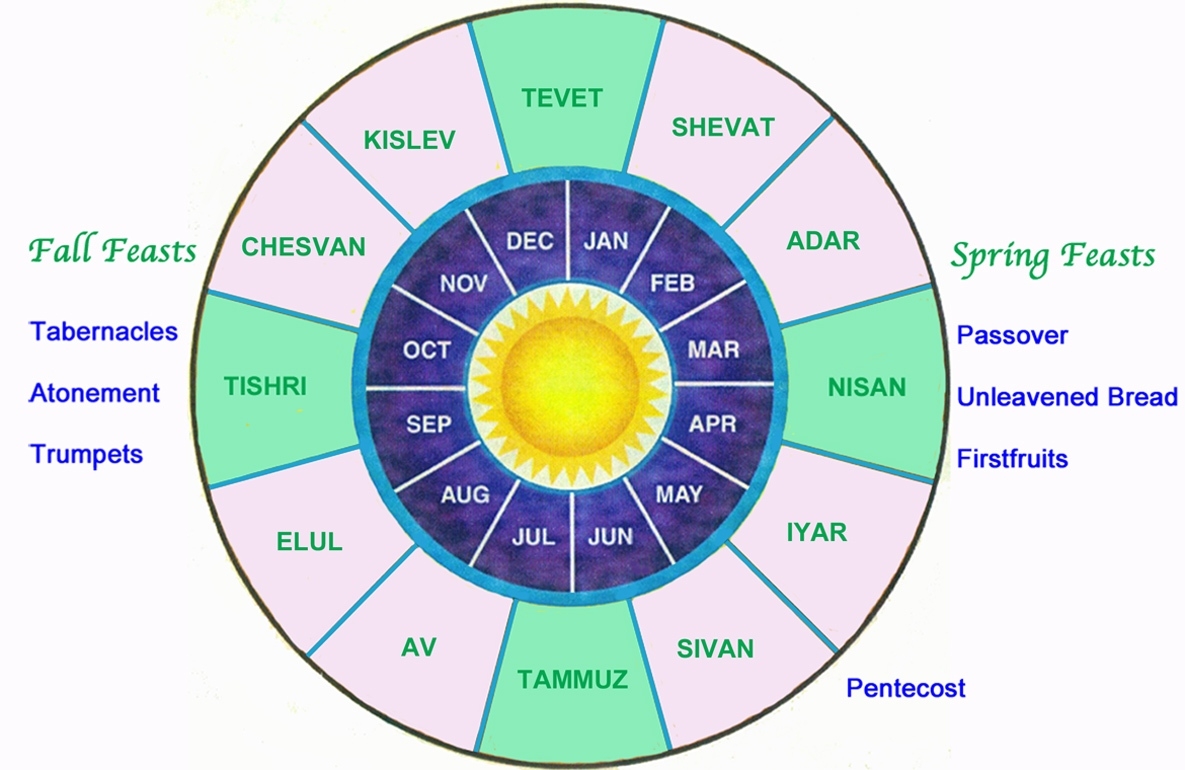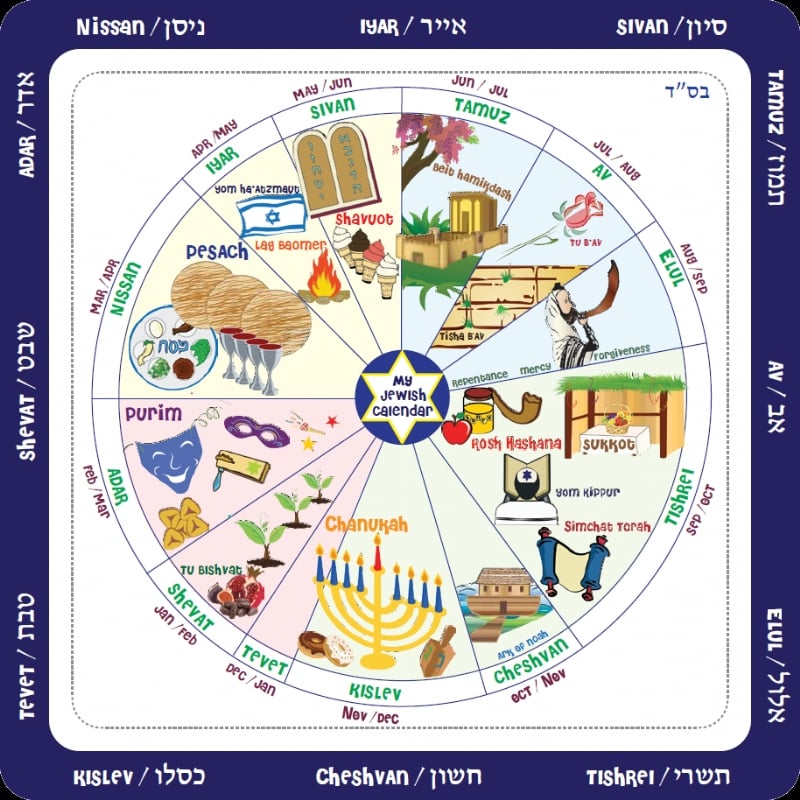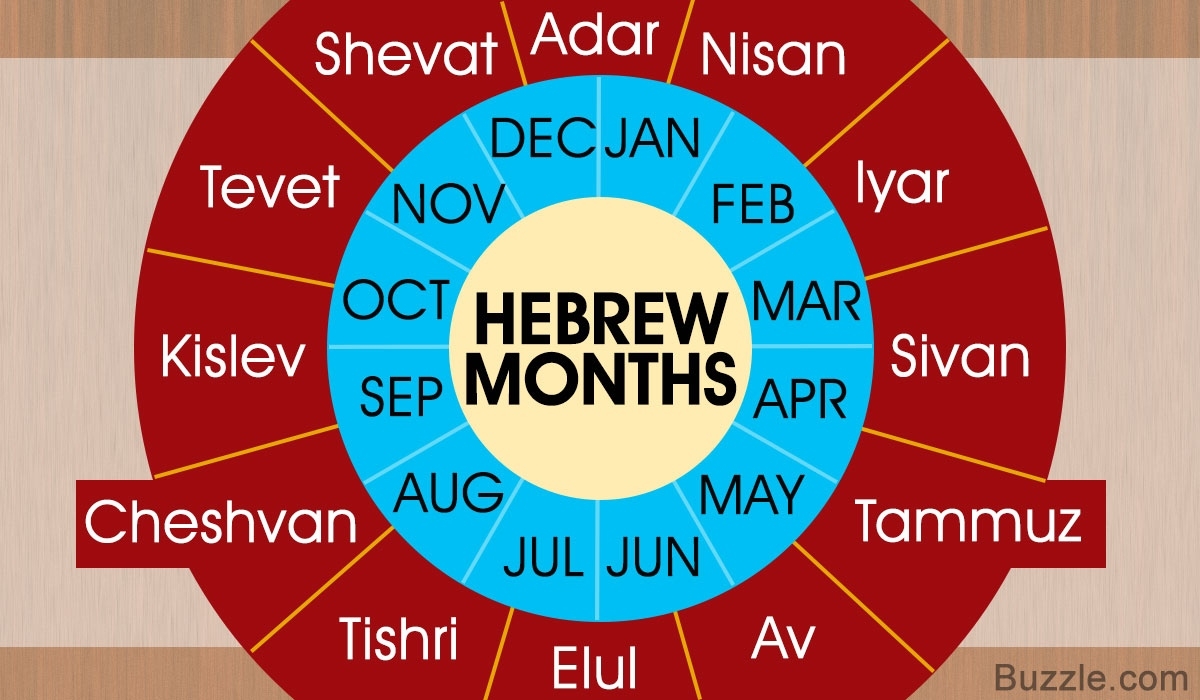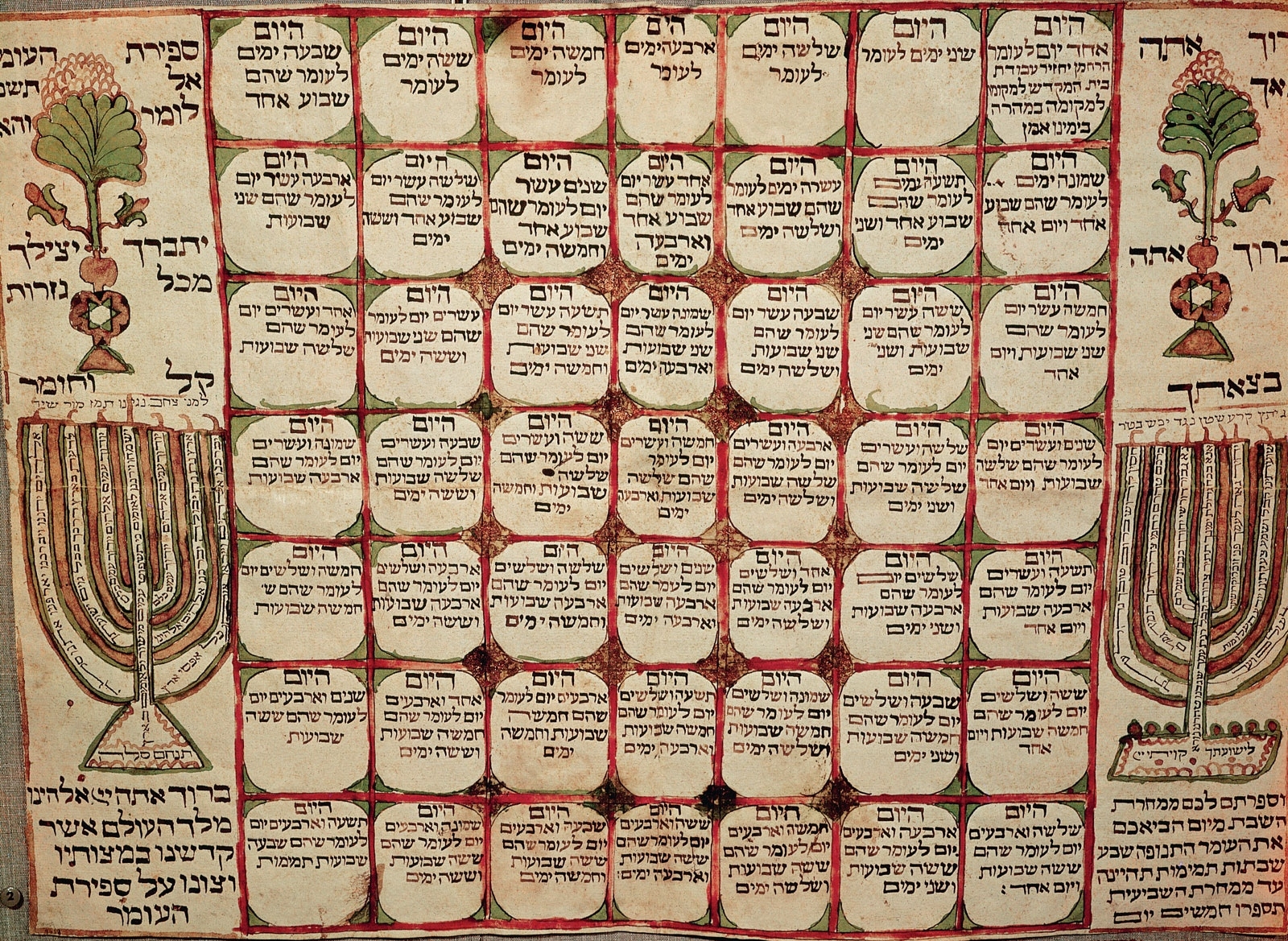8Th Month Of Jewish Calendar - Every month is either 29 or 30 days long, beginning (and ending) on a special day known as rosh chodesh (“the head of the month”). In considering the hebrew calendar, hebrew months were alternately 30 and 29 days long. חֶשְׁוָן (transliterated cheshvan or heshvan) is the 8th month of the hebrew year, has 29 or 30 days, and corresponds to october or november on the. This page shows a chart of the hebrew calendar months with their gregorian calendar equivalents. Their year, shorter than ours, had 354 days. The present jewish calendar is lunisolar, the months being reckoned according to the moon and the years according to the sun.
Every month is either 29 or 30 days long, beginning (and ending) on a special day known as rosh chodesh (“the head of the month”). חֶשְׁוָן (transliterated cheshvan or heshvan) is the 8th month of the hebrew year, has 29 or 30 days, and corresponds to october or november on the. Their year, shorter than ours, had 354 days. The present jewish calendar is lunisolar, the months being reckoned according to the moon and the years according to the sun. This page shows a chart of the hebrew calendar months with their gregorian calendar equivalents. In considering the hebrew calendar, hebrew months were alternately 30 and 29 days long.
Every month is either 29 or 30 days long, beginning (and ending) on a special day known as rosh chodesh (“the head of the month”). חֶשְׁוָן (transliterated cheshvan or heshvan) is the 8th month of the hebrew year, has 29 or 30 days, and corresponds to october or november on the. This page shows a chart of the hebrew calendar months with their gregorian calendar equivalents. In considering the hebrew calendar, hebrew months were alternately 30 and 29 days long. The present jewish calendar is lunisolar, the months being reckoned according to the moon and the years according to the sun. Their year, shorter than ours, had 354 days.
Eighth Month Of Jewish Calendar
Their year, shorter than ours, had 354 days. This page shows a chart of the hebrew calendar months with their gregorian calendar equivalents. The present jewish calendar is lunisolar, the months being reckoned according to the moon and the years according to the sun. In considering the hebrew calendar, hebrew months were alternately 30 and 29 days long. חֶשְׁוָן (transliterated.
Eighth Month Of The Jewish Calendar
חֶשְׁוָן (transliterated cheshvan or heshvan) is the 8th month of the hebrew year, has 29 or 30 days, and corresponds to october or november on the. The present jewish calendar is lunisolar, the months being reckoned according to the moon and the years according to the sun. Their year, shorter than ours, had 354 days. In considering the hebrew calendar,.
Extraordinary Eighth Monthi In The Jewish Calendarr Printable Blank
The present jewish calendar is lunisolar, the months being reckoned according to the moon and the years according to the sun. Their year, shorter than ours, had 354 days. Every month is either 29 or 30 days long, beginning (and ending) on a special day known as rosh chodesh (“the head of the month”). In considering the hebrew calendar, hebrew.
8Th Month Hebrew Calendar
The present jewish calendar is lunisolar, the months being reckoned according to the moon and the years according to the sun. In considering the hebrew calendar, hebrew months were alternately 30 and 29 days long. Their year, shorter than ours, had 354 days. This page shows a chart of the hebrew calendar months with their gregorian calendar equivalents. חֶשְׁוָן (transliterated.
Holidays
The present jewish calendar is lunisolar, the months being reckoned according to the moon and the years according to the sun. חֶשְׁוָן (transliterated cheshvan or heshvan) is the 8th month of the hebrew year, has 29 or 30 days, and corresponds to october or november on the. Every month is either 29 or 30 days long, beginning (and ending) on.
Extraordinary Eighth Monthi In The Jewish Calendarr Printable Blank
The present jewish calendar is lunisolar, the months being reckoned according to the moon and the years according to the sun. This page shows a chart of the hebrew calendar months with their gregorian calendar equivalents. Their year, shorter than ours, had 354 days. Every month is either 29 or 30 days long, beginning (and ending) on a special day.
8Th Month Of Jewish Calendar
Their year, shorter than ours, had 354 days. In considering the hebrew calendar, hebrew months were alternately 30 and 29 days long. This page shows a chart of the hebrew calendar months with their gregorian calendar equivalents. The present jewish calendar is lunisolar, the months being reckoned according to the moon and the years according to the sun. Every month.
All about the Jewish Calendar
Their year, shorter than ours, had 354 days. The present jewish calendar is lunisolar, the months being reckoned according to the moon and the years according to the sun. חֶשְׁוָן (transliterated cheshvan or heshvan) is the 8th month of the hebrew year, has 29 or 30 days, and corresponds to october or november on the. In considering the hebrew calendar,.
8Th Month Of Jewish Calendar
This page shows a chart of the hebrew calendar months with their gregorian calendar equivalents. In considering the hebrew calendar, hebrew months were alternately 30 and 29 days long. Every month is either 29 or 30 days long, beginning (and ending) on a special day known as rosh chodesh (“the head of the month”). Their year, shorter than ours, had.
8Th Month Of The Jewish Calendar
Every month is either 29 or 30 days long, beginning (and ending) on a special day known as rosh chodesh (“the head of the month”). In considering the hebrew calendar, hebrew months were alternately 30 and 29 days long. This page shows a chart of the hebrew calendar months with their gregorian calendar equivalents. The present jewish calendar is lunisolar,.
The Present Jewish Calendar Is Lunisolar, The Months Being Reckoned According To The Moon And The Years According To The Sun.
In considering the hebrew calendar, hebrew months were alternately 30 and 29 days long. Every month is either 29 or 30 days long, beginning (and ending) on a special day known as rosh chodesh (“the head of the month”). Their year, shorter than ours, had 354 days. This page shows a chart of the hebrew calendar months with their gregorian calendar equivalents.









